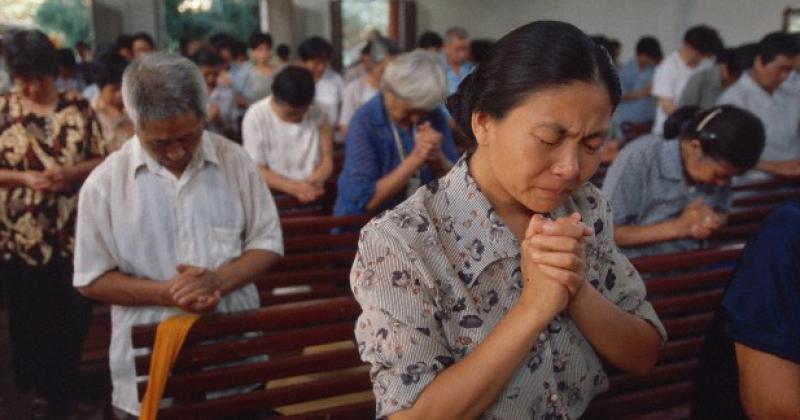“I earnestly hope that those countries of your continent with whom the Holy See does not yet enjoy a full relationship, may not hesitate to further a dialogue for the benefit of all. And here I do not just mean political dialogue but fraternal dialogue as well.”
The conclusion of Francis’ speech to Asian bishops – which he pronounced in Italian - at the shrine of Haemi contains the Pope’s first indirect reference to China since his arrival in Korea (his words also apply to North Korea and other Far Eastern countries such as Laos and Burma. The Holy See is in the process of establishing relations with Vietnam). Francis made this statement in a non-political context after explaining that dialogue is part of Christian nature and after recalling that genuine dialogue requires a capacity for empathy and an ability to listen, as well as a clear sense of identity. He then went off to speak off the cuff, adding a couple of points that were key in terms of the Holy See’s relations with China: “These Christians do not come as conquerors, they don’t come to take away our identity. They bring us their own identity but want to walk with us.” “The Lord will grant us his grace, some will ask for baptism and some will not, but we will always walk together.”
The point the Pope wished to make was that Christians do not intend to impose any cultural models and neither are they motivated by political strategies. They simply wish to proclaim the Gospel, not achieve a political regime change. These additions are significant in the Asian context and particularly in terms of the Holy See’s relations with the Chinese leadership.
The Pope’s hopes are tied to the shocking words he pronounced off the cuff during his meeting with young Asians on 15 August, about reconciliation between the two Koreas. The Pope’s telegram to the country’s authorities as he flew through Chinese airspace – the first time a papal plane has been allowed to do this – seems to have stirred the embers of dialogue. Francis’ evangelical mission also has geopolitical implications and China has sent out some interesting signals according to Francis’ closest collaborators.
As he crossed through Chinese airspace the Pope sent a telegram to President Xi Jinping. There was nothing unusual about this, as the pope traditionally sends a telegram to the governments of any country he flies over. But this was the first time one was sent to Beijing. "Upon entering Chinese air space, I extend best wishes to Your Excellency and your fellow citizens and I invoke the divine blessing of peace and well-being upon the nation,” Francis wrote. Ironically, the telegram sent on 14 August never reached its destination s the Chinese embassy in Rome contacted the Vatican Secretary of State to ask for the text. The initial reaction was positive.
China’s foreign affairs ministry spokesman, Hua Chunying stated: "We have noticed the remarks of Pope Francis. China has always been sincere in improving relations with the Vatican and has been making positive efforts for that.” His words were published by the China Daily newspaper and broadcast on Chinese national television. They were communicated in a positive tone without any of the usual comments warning the Holy See not to meddle in China’s domestic affairs and questioning its diplomatic relations with Taiwan. Fr. Matthew Zhen Xuebi’s reaction was significant too. He is an important representative of the Diocese of Beijing and the state-approved Catholic community. He spoke of “a step forward in advancing communication”: “We have hope that one day the two countries of China and the Vatican will establish diplomatic ties and that the pope will be able to visit China.”
Francis’ approach was clear from the first meeting he had with thousands of young Asians. Struck by one of the comments made by a young South Korean, who explained how she had been raised to consider North Koreans as enemies, he said: “There are two Koreas, no there is one Korea but it is a divided family ... pray for our brothers in the North. Lord, we are one family. Help us achieve unity, that there may be no winners or losers, only one family.” These spontaneous remarks had a profound effect on Korean public opinion. Meanwhile, Pyongyang clarified that the short-range rockets that were fired as Francis flew into South Korea were nothing to do with the Pope’s visit but were to mark the anniversary of Korea's independence from the Japanese occupation in 1945.
